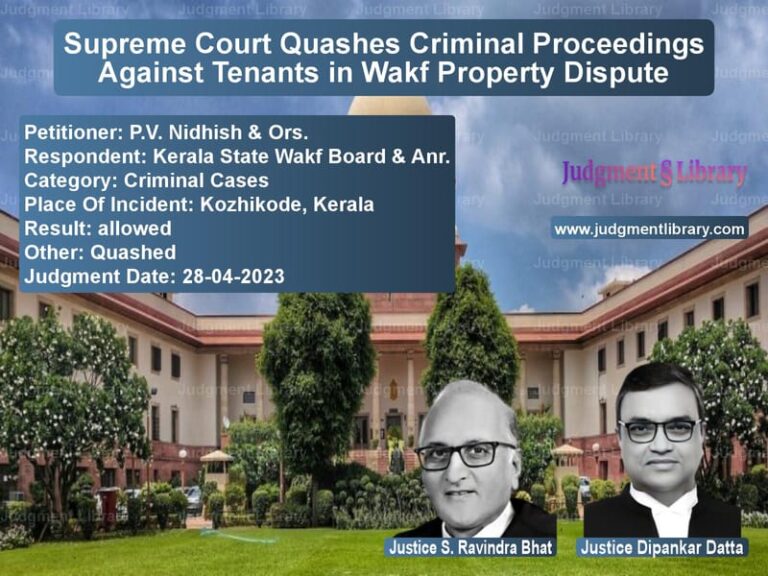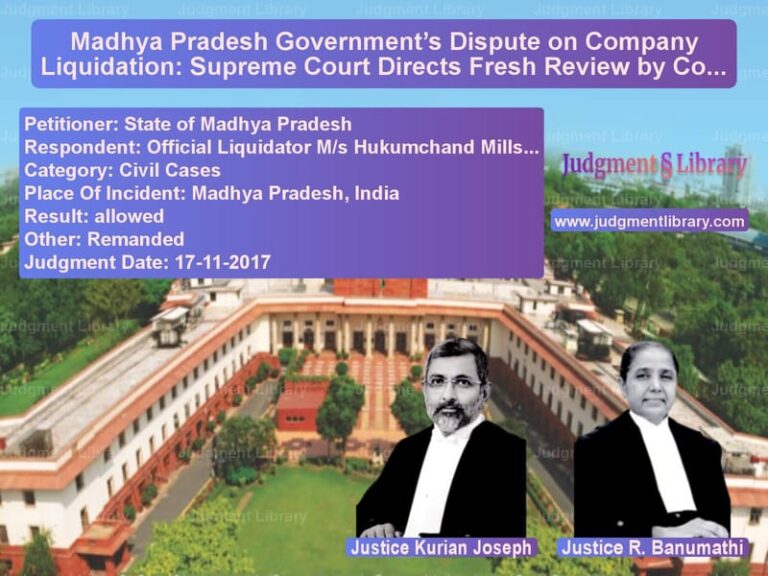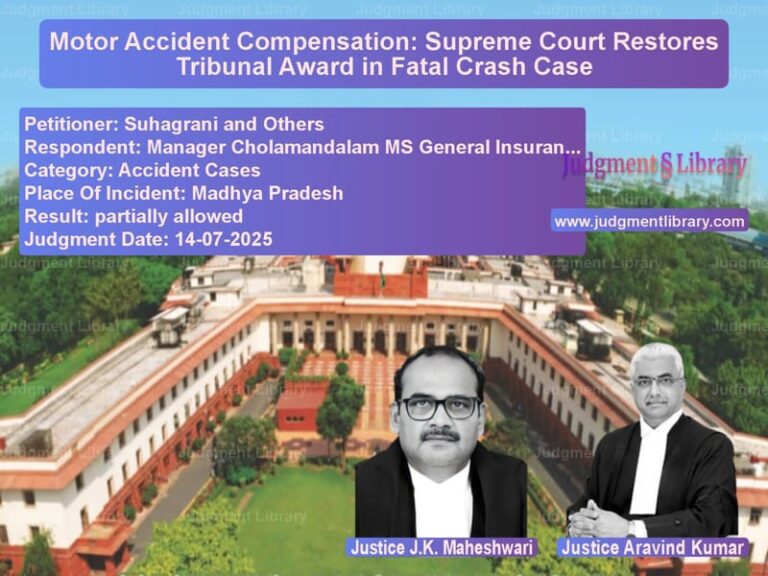Tamil Nadu Public Service Commission Appointments: Supreme Court’s Review of Termination Orders
The Supreme Court of India recently adjudicated a critical case concerning the termination of Tamil Nadu Public Service Commission (TNPSC) selected candidates due to alleged irregularities in the examination process. This case raised significant legal questions on fairness, administrative errors, and the application of Article 142 of the Indian Constitution.
Background of the Case
The case involved a batch of civil appeals and interlocutory applications related to Tamil Nadu Public Service Commission recruitments. The issue arose when certain candidates selected for Tamil Nadu State Services were alleged to have benefited from irregularities in the examination process. This led to petitions in the Madras High Court challenging their appointments.
The High Court’s Division Bench found merit in the allegations and ruled for the termination of the selected candidates. This decision was subsequently affirmed by the Supreme Court in its judgment dated June 30, 2014. The affected candidates, along with the Tamil Nadu Public Service Commission, filed review petitions challenging this ruling.
Arguments of the Petitioners (Tamil Nadu Public Service Commission & Affected Candidates)
- The selected candidates were not given adequate opportunity to present their case before the High Court.
- The Government of Tamil Nadu was not a party to the original litigation, even though it was responsible for appointing the candidates.
- The candidates had served in Tamil Nadu State Services for more than 7-8 years with an unblemished record.
- Terminating these officers at this stage would cause undue hardship, as they had already crossed the age limit for applying to other government posts.
- There were inconsistencies in the methods used by the High Court in evaluating the alleged irregularities.
Arguments of the Respondents (Original Petitioners in the High Court)
- The original selection process was tainted by unfair practices and irregularities in evaluating answer sheets.
- The High Court’s decision was justified to uphold transparency and fairness in public service recruitment.
- The review petitions were filed after a considerable delay and lacked substantial grounds.
- The message should be clear that no irregularity in public exams should be tolerated.
Supreme Court’s Analysis and Judgment
The Supreme Court acknowledged the complexities in the case and focused on the procedural deficiencies in the High Court’s ruling. The key findings were:
- The selected candidates were not given adequate time to represent their case before the High Court. The matter was listed on March 2, 2011, and decided on March 4, 2011, leaving insufficient time for preparation.
- The candidates had already been working in their respective positions for over a decade, and there was no evidence of inefficiency in their service.
- Reports from the Tamil Nadu Public Service Commission and Union Public Service Commission indicated that minor mistakes in the selection process were often overlooked in past cases.
Key Supreme Court Ruling Excerpts
In its ruling, the Supreme Court emphasized fairness in administrative decisions. It stated:
“Having an overall view of the matter, in the interest of administration as well as in the interest of the candidates, who have already passed the examination held by Tamil Nadu Public Service Commission and have been appointed by the State of Tamil Nadu in State services before several years, in exercise of powers under Article 142 of the Constitution of India, we direct that the candidates who have been working in different services of Tamil Nadu State shall be continued in service, notwithstanding any order passed by the Division Bench of Madras High Court and confirmed by this Court.”
The Court also noted:
“The selected candidates did not get sufficient opportunity to represent their case before the High Court, and upon hearing the concerned counsel and upon perusal of the record and report received from Tamil Nadu Public Service Commission as well as Union Public Service Commission, we also find that the mistakes, if any, committed by the candidates who have now been selected, were very often ignored and therefore, it would not be just and proper to take such a harsh view in the matter so as to render several reasonably good officers working for several years jobless.”
Exercise of Article 142
The Court exercised its extraordinary powers under Article 142 of the Constitution, which allows it to pass any order necessary to do complete justice in any matter. The review applications were allowed to the extent that the affected candidates were reinstated, ensuring that their long years of service were not wasted due to procedural shortcomings.
Conclusion
The Supreme Court’s judgment underscores the importance of procedural fairness in administrative decisions. While the need for integrity in public examinations is paramount, procedural lapses and undue delays in judicial processes should not lead to the undue hardship of candidates. By invoking Article 142, the Court ensured justice for candidates who had served diligently for years and reinforced the principle that administrative decisions should be subjected to fair adjudication before imposing harsh consequences.
Don’t miss out on the full details! Download the complete judgment in PDF format below and gain valuable insights instantly!
Download Judgment: Secretary, Tamil Nad vs A.B. Natarajan & Ors Supreme Court of India Judgment Dated 15-09-2016-1741883659550.pdf
Direct Downlaod Judgment: Direct downlaod this Judgment
See all petitions in Employment Disputes
See all petitions in Public Sector Employees
See all petitions in Disciplinary Proceedings
See all petitions in Judgment by Anil R. Dave
See all petitions in Judgment by Dipak Misra
See all petitions in allowed
See all petitions in Modified
See all petitions in supreme court of India judgments September 2016
See all petitions in 2016 judgments
See all posts in Service Matters Category
See all allowed petitions in Service Matters Category
See all Dismissed petitions in Service Matters Category
See all partially allowed petitions in Service Matters Category







